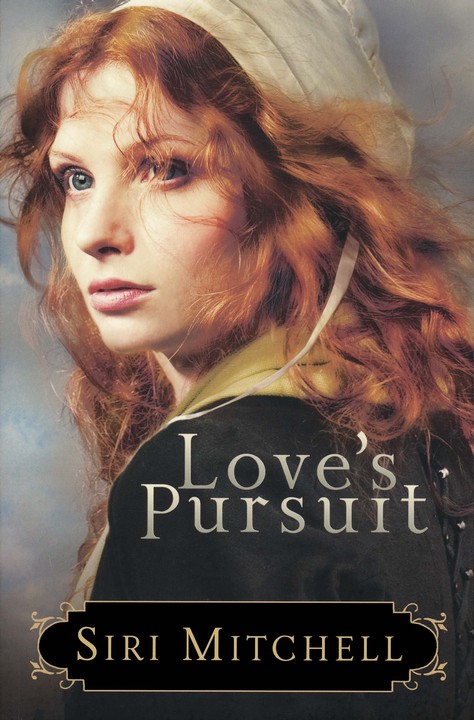 Siri Mitchell graduated from the University of Washington with a business degree and worked in various levels of government. As a military spouse, she has lived all over the world, including in Paris and Tokyo. Siri enjoys observing and learning from different cultures. She is fluent in French and loves sushi. Siri wrote 4 books and accumulated 153 rejections before signing with a publisher. In the process, she saw the bottoms of more pints of Ben & Jerry’s than she cares to admit. At various times she has vowed never to write another word again. Ever. She has gone on writing strikes and even stooped to threatening her manuscripts with the shredder. A Constant Heart was her sixth novel. Two of her novels, Chateau of Echoes and The Cubicle Next Door were Christy Award finalists. She has been called one of the clearest, most original voices in the CBA. |
Time for a Change? |
|
You’re thinking about changing genres. What could be easier, right? Just shed your current one like a snake sheds its skin, slide on out, and ta-da, a brand-new career! If only it were that easy. In a previous writing life, I wrote humorous contemporary romance (the genre formerly known as chick-lit). In my current incarnation, I write historical romance. If I could do it all over, would I do it all over? Without hesitation. But this time I’d do it better. Writing is a team effort. Although the creation of a book begins with you, its writer, it would be difficult to achieve anything in this industry without an agent and a like-minded publisher. Changing genres will place demands on all three of you. YOU: Take some time to reflect. Why does it make sense for you to change? Are you frustrated with the current market? Is there a genre which seems to be selling better than your current one? Or is writing in the new genre a step of natural growth? Is this new direction the obvious next step in your career? Is this book for the new genre supported by other ideas? And how does it fit with your current body of work? What writing strengths can you bring from your old genre to your new one? Maybe your strong character development or plotting skills will be an asset in your new genre. Maybe you can still use the same POV, themes, or style. As you think about your reasons for switching, realize that a new genre is not a magic cure-all. It will not fix your POV problems; it will not automatically make you a better plotter or a better dialogue writer. In fact, it might exacerbate your weaknesses instead of magnifying your strengths. AGENT: Talk to your agent; she’s a partner in your business. If you keep a running list of story ideas, make sure you forward it to her now and then. (If you don’t keep a list, start!) By having the opportunity to look at your ideas, your agent will be able to help you identify trends in your writing. She’ll be able to tell you which ideas are strongest and most marketable. If she knows where you want to go, she’ll do a better job formulating a plan to get you there. But remember, just like everything else in publishing, it might take some time. You might not be able to make the jump all at once; there may be some intermediate steps to take. One step may involve writing the novel (or a good portion of it) on spec. It can be liberating to write a book no one knows about and no one but your agent is waiting for. It can also be paralyzing knowing that your dream is on the line. What if you can’t do it after all? And how do you make room for writing within your current deadlines? Is this your dream? Is it worth pursuing? Then it’s probably worth taking a couple years to do it. Most writers take breaks between drafts and projects. View your new genre novel as a mental break. Instead of filing papers or organizing your pencils, take the week or two between drafts or projects to work on your new idea. Used to writing two books a year or one every nine months? It may be that you’ll have to ease up on your deadlines. |
PUBLISHER: Once you decide to make the change, you’re going to have to make other decisions. How are you going to convince your publisher to let you switch? Or are you going to look for a new publisher? Even if your publisher likes the idea of the change, realize that some publishers sell certain genres better than others. A publisher who can virtually guarantee your suspense book a slot on the CBA Best-Seller List may not be able to help you get there with your historical romance. If you can’t convince your publisher to let you make the change, are you willing to switch publishers—to adjust to a new house editing style, new people, and new expectations? Realize that your readers may not follow you to your new genre. There’s a certain disappointment when a favorite author decides to try something new. Readers may not understand that part of what they liked about your writing was that it fit the conventions of your old genre. You may have to start building a new audience. Talk with your publisher about a plan for transition . . . or a plan to launch you as a “debut” author in the new genre. Changing genres requires a willingness to risk, and perhaps to lose a little in the short run, to plant your literary flag on a new hill. It also takes some thought and planning. If you don’t have the time right now to start writing, don’t despair. Start reading current books in the new genre to educate yourself. Every genre has its own conventions; you violate them at your own peril. Now is not the time to write a suspense-fantasy-romance. You’re already making a leap by switching genres. Make it easy for new readers to find you (and love you) by staying within the parameters of your new genre. And make it easier for old readers to stick with you by trying to maintain at least one element of your signature style. As Ellen Glasgow once said, “All change is not growth; as all movement is not forward.” Time for a change? That’s up to you!
 |







